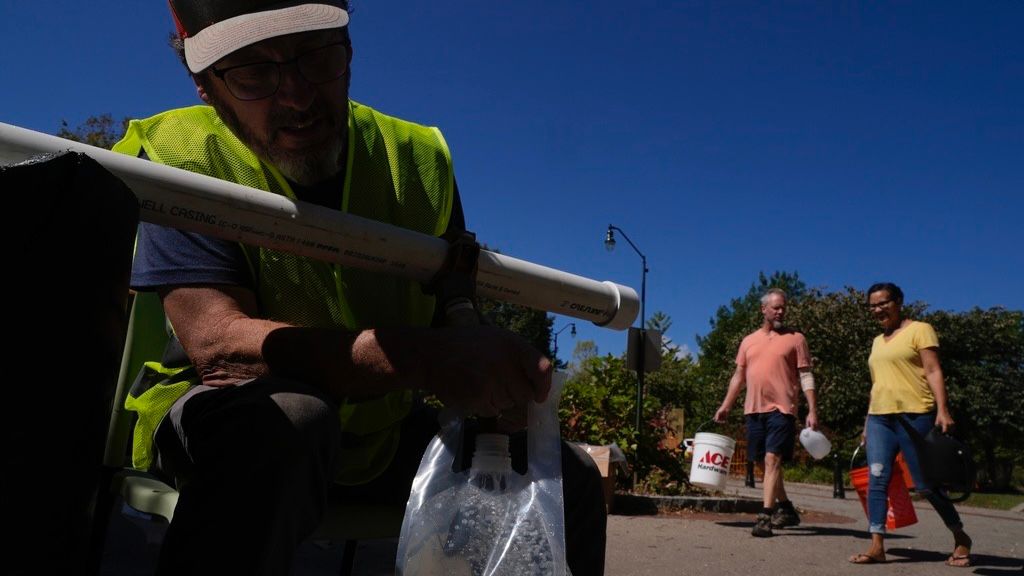Eleven days after Hurricane Helene tore through the Southeastern United States, leaving a 600-mile path of destruction, the Federal Emergency Management Agency is deploying aid to the region while simultaneously preparing for expected fallout from another hurricane poised to make landfall in Florida this week.
“This is a complicated event, but let me be clear: FEMA is good at complexity,” FEMA Administrator Deanne Criswell said during a media briefing Monday in North Carolina, where hundreds of people are still missing and 500 roads and 50 water systems have been impaired or destroyed.
The White House says federal support has surpassed surpassed $210 million and FEMA has so far distributed $137 million in assistance to Hurricane Helene survivors. As of Monday, almost 7,000 emergency responders have been deployed and 15.6 million meals have been shipped, along with 13.9 million liters of water, 157 generators and more than 505,000 tarps.
In North Carolina, home to about half of the 227 fatalities from the storm so far, FEMA has more than 800 staff on the ground and 1,200 urban search and rescue personnel. More than 1,000 National Guard troops are also in the state, helping to deliver food, water and other supplies, some of which is being air dropped into isolated communities.
On Monday, the Department of Defense announced it has deployed 1,500 personnel to the Western part of North Carolina, much of which is still without power and largely inaccessible. Army General John Morrison said the DOD has sent 41 aircraft (including helicopters) and 918 vehicles (including all-terrain vehicles) to help clear roads, deliver commodities, provide medical care and search for missing people.
The number of missing “is rapidly dwindling,” according to North Carolina Gov. Roy Cooper. “We know a lot of reunifications have occurred that have not been reported back. We know that a lot of people have finally gotten cell phone service and talked to the people who made the report that hasn’t gotten back to us.”
He said he will have an update on the list of missing by Tuesday morning.
More than 104,000 people in North Carolina have registered for FEMA assistance, he said; $31 million in aid has so far been distributed in the state. About 1,700 people are currently sheltering in hotels.
Cooper discouraged tourists from traveling to Western North Carolina.
“We need to preserve roads for the commodities that are coming in, for utility workers, for cell phone workers, for people who are providing medical assistance,” he said. “There’s a lot of work going on to make sure that people are getting their oxygen, making sure they’re getting their regular medical supplies, so we don’t want people coming right now.”
He said it will take time to repair the hundreds of roads that were damaged by the storm. On Friday, the Biden-Harris administration sent $100 million in emergency funding to North Carolina to repair roads and bridges damaged by the hurricane. Cooper said the state legislature will approve additional funding this week for road repairs.
FEMA Administrator Deanne Criswell encouraged anyone affected by the hurricane to apply for assistance, including $750 in immediate monetary aid to help pay for medicine and food.
“Then we’re going to give additional money for the repairs to your homes and the items that were lost,” she said. “We’re going to help with any rental that they incur or any of the displacement costs if they stayed at a hotel. All of that will be reimbursed, but I can’t give it to them if they don’t apply.”
With Hurricane Milton poised to make landfall in Florida later this week, FMEA said it has the resources and capacity to address multiple disasters simultaneously.



